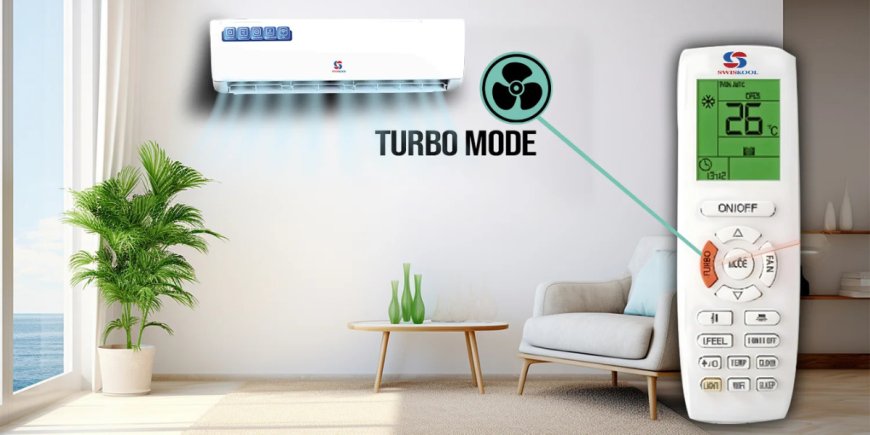Is a Non Inverter Air Conditioner Still Worth It Today?
Discover whether a Non Inverter Air Conditioner suits your needs, benefits vs inverter models, and how to maximize comfort and savings. Read on to learn more!

Are you still relying on an old-school Non Inverter Air Conditioner and wondering if its holding you back? Have you ever thought, Should I upgrade, or can I squeeze more life out of this classic unit? Lets unpack this together, in a friendly, no-nonsense chat.
1. What Exactly Is a Non Inverter Air Conditioner?
A Non Inverter Air Conditioner is the traditional AC model many households still use. It runs at a fixed compressor speed: when you turn it on, it blasts at full power until the set temperature is reached, then switches off. Unlike modern inverter models, it doesnt adjust speed gradually. Result? Rapid temperature shifts and potentially higher energy bills, but simpler mechanics and lower upfront cost. Thats the gistbut lets dig deeper.
2. Pros of Choosing a Non Inverter Air Conditioner
Simpler Design, Easier Maintenance
With fewer moving parts, your Non Inverter Air Conditioner can be easier to service. Repairs often cost less and can be done quickly.
Lower Initial Investment
Many still go for one because its cheaper up front. Good if budget matters more than long-term efficiency.
Older Units Are Familiar
If youve had your unit for years, you know its quirksno surprises there. No need to learn new features or controls.
Ideal for Short-Term Use
If you only need cooling for a few months a year, the simplicity might outweigh efficiency concerns.
3. Drawbacks You Cant Ignore
Energy Consumption
Because it cycles on and off, a Non Inverter Air Conditioner often uses more electricity. The initial burst of power each time it restarts can jack up your bills.
Comfort Fluctuations
Ever notice the room getting too cold, then too warm? Thats your Non Inverter Air Conditioner doing its on/off routineand it can affect sleep and comfort.
More Noise
Turn on the AC and youll hear it. Turn it off. Hear that too. That start/stop cycle brings noisecould be a nuisance in quiet home environments.
4. When a Non Inverter Air Conditioner Makes Sense
-
Limited Usage: If you only use AC a couple of months a year, investing in an inverter model may not pay off quickly.
-
Budget Constraints: Need cooling now? A Non Inverter Air Conditioner gets the job done with less upfront cost.
-
Backup Units: For guest rooms or infrequent use, keep your simpler model as a reliable option.
-
DIY Maintenance: Enjoy tinkering? This type is easier to maintain without tech expertise.
5. Tips to Get the Best from Your Non Inverter Air Conditioner
-
Clean filters monthlyflat filters mean stronger airflow and less energy waste.
-
Seal windows and doorsdont let cool air escape or warm air sneak in.
-
Use a timer or smart plug to avoid leaving it on all day.
-
Keep vents clearno obstructions near supply or return vents.
-
Check refrigerant and coils annualy, or at the start of summer.
-
Add fans to circulate airhelps reduce cooling demand.
6. Inverter vs Non Inverter Air Conditioner Side by Side
| Feature | Non Inverter AC | Inverter AC |
|---|---|---|
| Initial Price | Lower | Higher |
| Energy Efficiency | Lower | Higher |
| Comfort (Temp Fluct.) | Noticeable | Minimal |
| Noise Level | Higher (cycle noise) | Lower, more consistent |
| Maintenance | Easier, cheaper | Slightly complex, costly |
7. Real-Life Experiences: Voices of Users
-
My Non Inverter Air Conditioner lasted 12 years with only one capacitor change. The upfront cost was great for my budget.
-
I replaced mine last year and I can feel the difference. But the old one was simple and reliable.
Real stories like these show it isnt all badyou just need to weigh what matters most: cost, comfort, convenience.
8. When to Finally Upgrade
Think about switching if:
-
Your energy bills keep climbing.
-
Temperature swings are uncomfortable.
-
You use AC dailyespecially all summer.
-
Noise is getting irritating.
-
You want smooth, precise climate control.
In those cases, an inverter model worth its salt can end up saving money long term.
9. Boosting Efficiency Without Replacing
Even with a Non Inverter Air Conditioner, you can still improve things:
-
Add reflective window film to reduce heat gain.
-
Use fans or ceiling fans to help spread cool air.
-
Install a programmable thermostat to control runtime.
-
Avoid heat-dense activities near ACoven, dryer, etc.
-
Spend a little now to save a lot later.
10. Final Verdict: Is It Still Worth It?
A Non Inverter Air Conditioner isnt outdatedit still hauls heat out of the room. But for daily use, rising electricity costs, and peace, modern inverter units bring better value over time. Meanwhile, if your needs are occasional and budget is tight, your trusty non-inverter may still be the smarter move.
Conclusion: What Should You Do?
-
If low cost and simplicity rank high: stick with your Non Inverter Air Conditioner, just maintain it well.
-
If comfort, quiet, and savings matter more: beginning the transition to an inverter model makes sense.
Whatever path you choose, know its your decisionwith pros and cons on both sides.







































